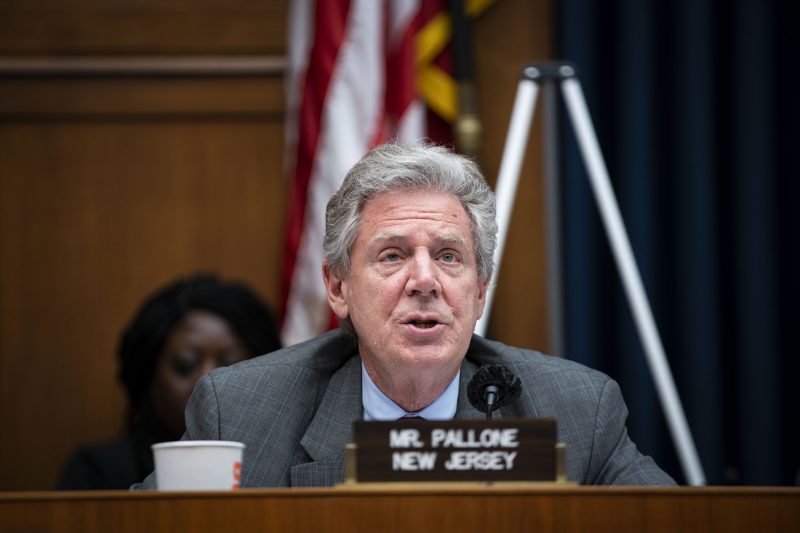
House Dems vote against bill to permanently classify fentanyl as Schedule 1 controlled substance
Democrats on the House Energy and Commerce Committee on Wednesday voted against legislation that would permanently classify both fentanyl and fentanyl-related substances (FRS) as Schedule 1 drugs that carry the toughest penalties for trafficking and possession.
Republicans say the growing fentanyl problem in America means the U.S. should permanently treat those drugs as Schedule 1 substances in the hopes of boosting penalties and stopping their spread. In 2018, the Trump administration temporarily scheduled FRS as a Schedule 1 drug in light of the growing number of fentanyl-related deaths, and Congress has extended that temporary status a few times since then.
House Republicans argue that it’s time to permanently reclassify fentanyl and FRS, and they called up a bill to do so in the Energy and Commerce health subcommittee on Wednesday to stop what several Republicans called the poisoning of tens of thousands of American citizens.
The subcommittee approved the bill in a 17-10 vote in which every Democrat voted against it except for Rep. Angie Craig, D-Minn. Other Democrats rejected the bill after arguing that the change should be coupled with an end to mandatory minimum sentences for FRS charges.
Specifically, Democrats said FRS cases that don’t lead to death or serious bodily harm should not carry mandatory minimum sentences, and they broadly argued that Republicans need to treat the matter more like a health crisis and less like a criminal crisis.
‘Mandatory minimums should take into account whether the cases involve overdoses or serious bodily harm,’ said Rep. Anna Eshoo, D-Calif.
Another Democrat, Rep. Frank Pallone of New Jersey, said Democrats support the Biden administration’s plan to only apply mandatory minimum sentences for FRS unless an offense results in serious harm or death, and to let people sentenced to seek lower sentences if an FRS is later classified as a less-harmful drug.
‘Republicans have refused to work with us’ on those and other provisions, Pallone said.
Groups that normally support Democrats, such as the ACLU and Human Rights Watch, argued in 2021 that maintaining tough penalties related to fentanyl would ‘exacerbate pretrial detention, mass incarceration and racial disparities in the prison system, doubling down on a fear-based, enforcement-first response to a public health challenge.’
But law enforcement groups have called for tougher penalties — in 2021, the National Fraternal Order of Police called on the government to address the ‘growing illicit fentanyl overdose epidemic that has gripped this country.’
Republicans said Wednesday that the deaths of tens of thousands of people due to fentanyl mean Congress must take swift action to ensure tough penalties against fentanyl and FRS. The government attributed 106,000 fentanyl-related deaths in 2021, and Rep. Bob Latta, R-Ohio, one of the sponsors of the bill, said fentanyl and FRS have become ‘weapons of mass destruction’ that must be policed.
‘This should not be a political issue,’ Latta said. ‘It’s about addressing the largest poisoning of Americans in the history of our country and taking steps to end the scourge.’
Republicans also rejected the idea from Democrats that tough fentanyl penalties are creating unfair sentences. Rep. Dan Crenshaw, R-Texas, said the growing number of fentanyl deaths of Americans is ‘murder at this point,’ and Rep. Brett Guthrie, R-Ky., said that making fentanyl and FRS riskier to bring into the country will both reduce the deaths and lower the number of fentanyl sentences.
‘The point is you can’t die from ingesting something that was never created, nor can you be incarcerated for selling something that doesn’t exist,’ he said.
Rep. Morgan Griffith, R-Va., added that because there are tens of thousands of fentanyl analogues already in existence, it makes no sense for Congress to try to analyze each one and assess which ones might pose no harm to people. He also said the GOP meets one demand being made by Democrats, which is to make it easier for researchers to access FRS in order to study these drugs.
